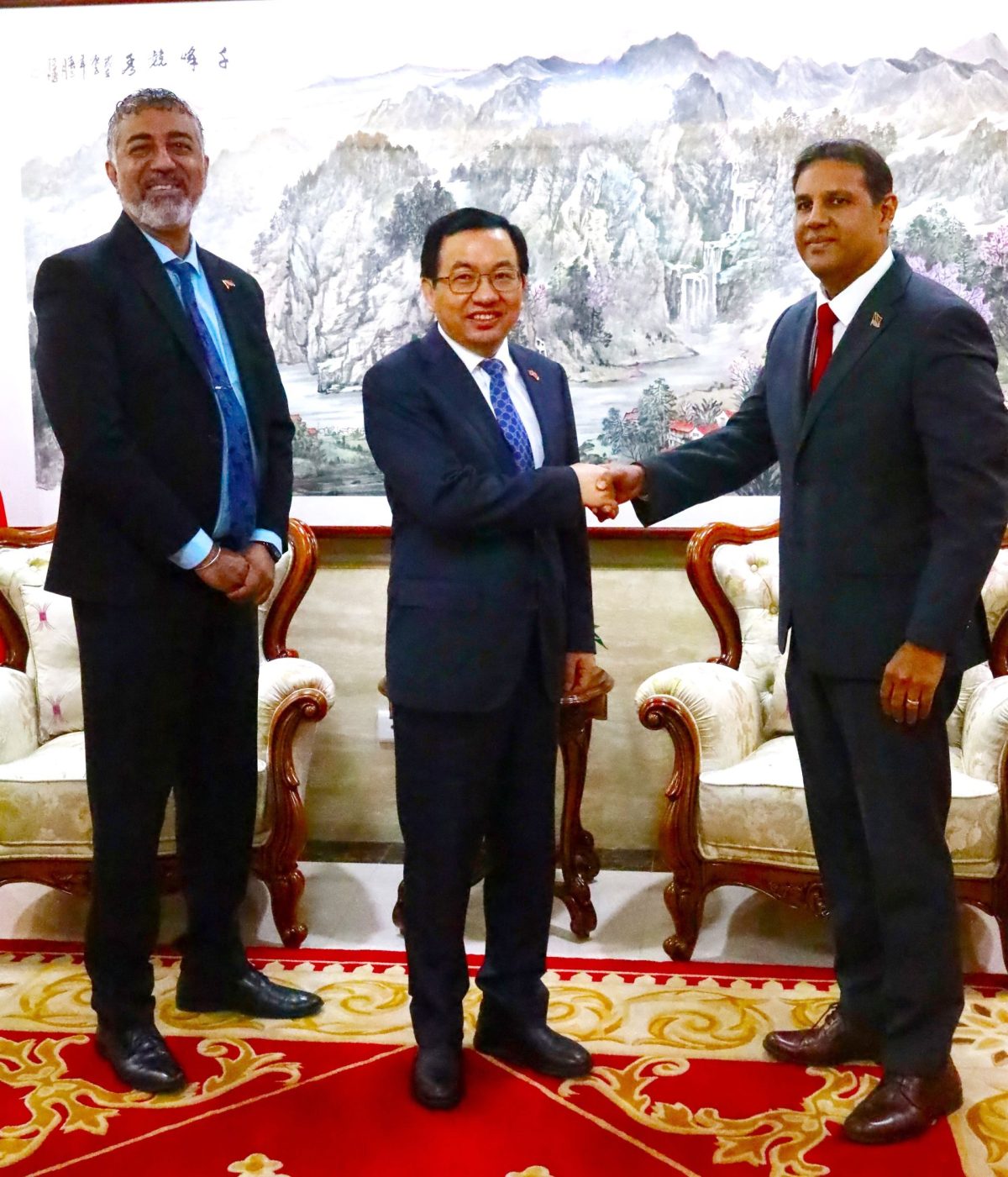(Trinidad Guardian) How would you feel if your heart surgeon was a robot?
According to Health Minister Terrence Deyalsingh, this may soon be a reality, as T&T is working towards introducing robots to its medical arsenal.
He said this will help in the treatment of various diseases, including cardiovascular ailments.
Deyalsingh made the comment during a virtual seminar hosted at the Chinese Embassy, Long Circular Road, Maraval, yesterday.
The China to Trinidad and Tobago Cardiovascular Medical Seminar saw members of the medical fraternity, including Chief Medical Officer Dr Roshan Parasram, Permanent Secretary in the Ministry of Health Asif Ali and doctors and nurses participate in a one-day virtual lesson. Further lessons will be emailed to participants.
China’s representatives included Ambassador Fang Qiu; deputy director of the Beijing Municipal Health Commission Zheng Jinpu; director of the Foreign Aid Department, International Exchange and Cooperation Centre Yuan Xuemei; and National Health Commission of China and Vice-president of Beijing’s Anzhen Hospital Professor Zhou Yujie.
In a pre-recorded address, Deyalsingh lauded China for marrying medicine and technology. He spoke of Robocath, a company that designs, develops and markets innovative robotic solutions to treat cardiovascular diseases, performing the first in-human robotic coronary angioplasty last December.
This, he said, was done through 5G internet connectivity from some 1,700 miles (2,800 km) away. He noted that this can pave the way for more long-distance endovascular procedures.
It is against this backdrop Deyalsingh said robotics would be included in the country’s health sector.
Recommended for you
“I am pleased to report that the Ministry of Health will also soon be adding to its medical arsenal, robots which are designed to assist our medical experts in the execution of various procedures. In light of the Chinese government’s medical advancements and resourcefulness, I know that our medical professionals at the Ministry of Health would be eager to execute the CVD training,” he said.
He added that while Robocath was performing surgery via connectivity, Chinese researchers had proposed magnetic mini-robots to move upstream in blood vessels to assist with cardiovascular procedures.
The coupling of medicine and technology had far-reaching benefits and China’s input could assist in bringing T&T to that reality, Deyalsingh said. He said China’s use of Artificial intelligence (AI) and digital health technologies in cardiovascular medicine lent to improved quality of patient care, with growing data to facilitate personalised and precision medicine.
“The potential of AI in cardiovascular medicine is tremendous and Chinese cardiovascular physicians have made headway in AI-assisted diagnosis, treatment, and clinical research of cardiovascular diseases. This is instrumental in driving the deep integration of AI and digital health technologies in the cardiovascular field.”
Deyalsingh said the lessons taught at the seminar included: anticoagulant therapy for atrial fibrillation patients (Afib), obstructive sleep apnea and coronary artery disease, contemporary primary PCI for STEMI patients, contemporary management of calcified coronary lesions, and the principles and practices of catheter ablation of atrial fibrillation.
“The benefits from these courses are numerous and can have a positive impact on our nation’s citizens,” he said.
Meanwhile, Ambassador Fang Qiu said health collaboration between the countries was not new. He reminded all of the Chinese naval hospital ship “Peace Ark” which visited T&T, the six batches of medical teams sent by China, and the establishment of the China-T&T Microsurgery Training Center and Couva Hospital as evidence of this.
To the participants, he said, “I firmly believe and anticipate that your exchanges and mutual learning will advance cardiovascular medicine research and treatment in both countries, truly benefiting the people and strengthening the bonds of our shared future. The Chinese Embassy is prepared to collaborate with you to contribute to building a community of health for all.”






